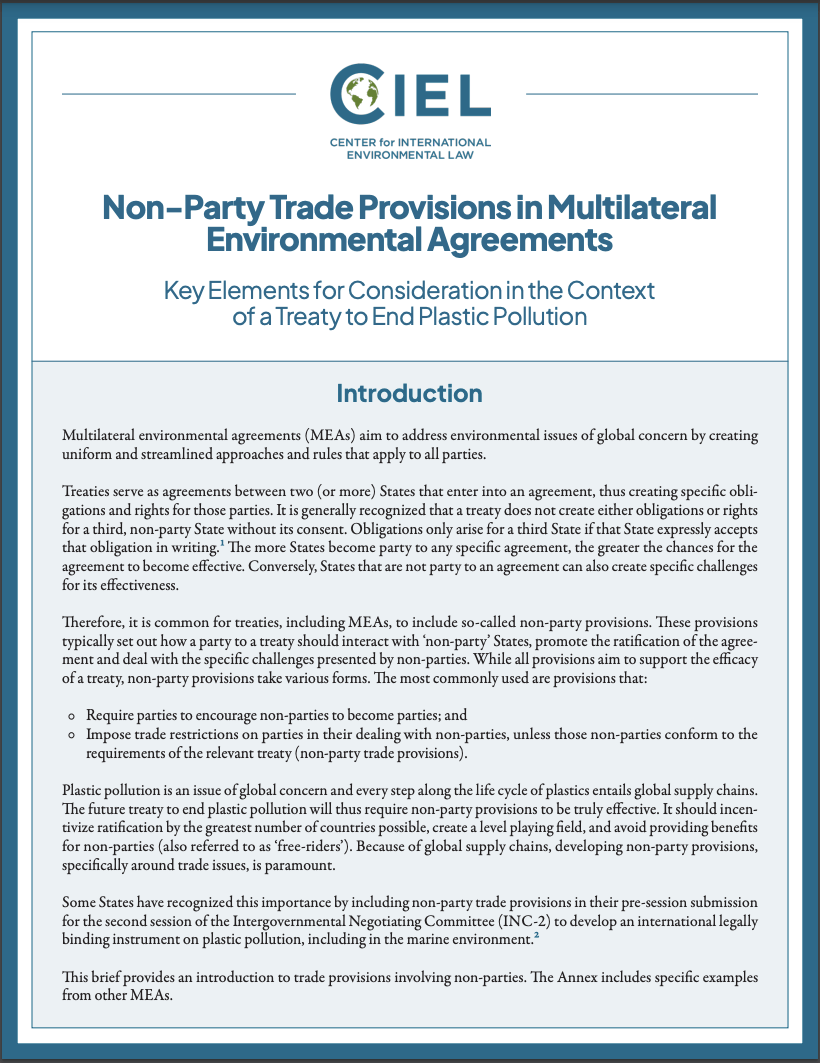
Multilateral environmental agreements (MEAs) aim to address environmental issues of global concern by creating uniform and streamlined approaches and rules that apply to all parties.
Treaties serve as agreements between two (or more) States that enter into an agreement, thus creating specific obligations and rights for those parties. It is generally recognized that a treaty does not create either obligations or rights for a third, non-party State without its consent. Obligations only arise for a third State if that State expressly accepts that obligation in writing. The more States become party to any specific agreement, the greater the chances for the agreement to become effective. Conversely, States that are not party to an agreement can also create specific challenges for its effectiveness.
Therefore, it is common for treaties, including MEAs, to include so-called non-party provisions. These provisions typically set out how a party to a treaty should interact with ‘non-party’ States, promote the ratification of the agreement and deal with the specific challenges presented by non-parties.
Our brief “Non-Party Trade Provisions in Multilateral Environmental Agreements: Key Elements for Consideration in the Context of a Treaty to End Plastic Pollution” provides an introduction to trade provisions involving non-parties in the context of the future treaty to end plastic pollution.
To be truly effective, the plastics treaty will require non-party provisions. It should incentivize ratification by the greatest number of countries possible, create a level playing field, and avoid providing benefits for non-parties. Because of global supply chains of plastics, developing non-party provisions for the plastics treaty, specifically around trade issues, is paramount.
Read the brief.
Published on April 6th, 2023
